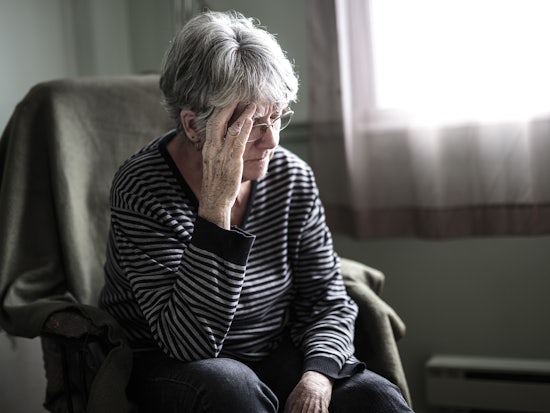Mental Health of older Australians a “priority” of awareness month
World Mental Health Week (7-13 October) has kicked off across the globe, with many industry experts within Australia issuing a reminder that mental health doesn’t only affect the young, but the old too.

Good mental health is a “key factor” associated with healthy ageing (Source: Shutterstock)
Coinciding with World Mental Health Day (10 October) and a number of State-based Mental Health Awareness Month events, the initiative is all about increasing public awareness across the globe relating to the mental health of all people of all ages.
Australian Institute of Health and Welfare (AIHW) statistics show that good mental health is a “key factor” associated with healthy ageing, but notes that “while the prevalence of mental health disorders tends to decrease with age, there are certain sub-groups of the older population that are at higher risk”. These groups include people in hospital, supported accommodation, people with dementia, and older carers.
The same research also notes that in 2016-17 people aged over 65 received 950,000 Medicare-subsidised mental health related services.
The Federal Government recently put this information in the spotlight and made it a “national priority” when they announced a $82.5 million Budget commitment to mental health services for people in residential aged care back in July, and this week when they also announced the establishment of a Productivity Commission Inquiry into the role of mental health in the Australian economy.
The newly announced and comprehensive inquiry is expected to reveal the “true impact” of mental illness on the economy, and provide recommendations on how the Government can most effectively improve population mental health, and social and economic participation.
Federal Minister for Seniors and Aged Care, Ken Wyatt, says the issue of mental health and older Australians is a key focus for Government, adding that the Budget funding of $82.5 million over four years will improve access to psychological services in residential aged care.
“Mental illness in the older population is more than the experience of loneliness, sadness or grief,” he says.
“It is often the result of an accumulation of multiple physical, social and emotional risk factors that lead to persistent negative thoughts and can become self-reinforcing and limit a person’s ability to participate in, or benefit from, activities that might otherwise promote wellbeing.”
Henry Brodaty, Professor of Ageing and Mental Health at the Centre for Healthy Brain Ageing (CHeBA), UNSW Sydney, agrees that the risk of mental illness in older Australians can be contributed to biological, psychological and social-environmental factors.
He notes that the biological factors can include past history of mental health problems, physical or neurological disease and dementia; that psychological factors can include grief, bereavement and loss of purpose; with social-environmental factors including isolation, lack of connectedness, anxiety about the future and institutional placement.
“It may be possible to prevent mental illness by providing good care, counselling and information to older people,” Professor Brodaty says.
“Lifestyle factors can prevent or ameliorate mental illness in older people.
“Mental illness is treatable and is not a disgrace or a sign of weakness.”
While noting that historically “some older people see mental health problems as a character flaw or a weakness”, beyondblue’s Lead Clinical Advisor, Dr Grant Blashki, says the community has come a long way in terms of awareness and services available.
“Just ten years ago, people were unlikely to use terms such as mental health or talk about their own issues,” he says.
Dr Blashki says that while seeing a general practitioner is a great starting point to assess symptoms and begin recovery, which may lead to a referral to a psychologist, there are many things that can be done prior to medical intervention.
“Having a caring conversation with a loved one and talking about the changes you’ve noticed about their behaviour can make the world of difference,” Dr Blashki explains.
“It is vital that older Australians get the mental health support they need, so they can live well and enjoy life.”
To find out more and to see what mental health awareness events are near you visit https://1010.org.au/























